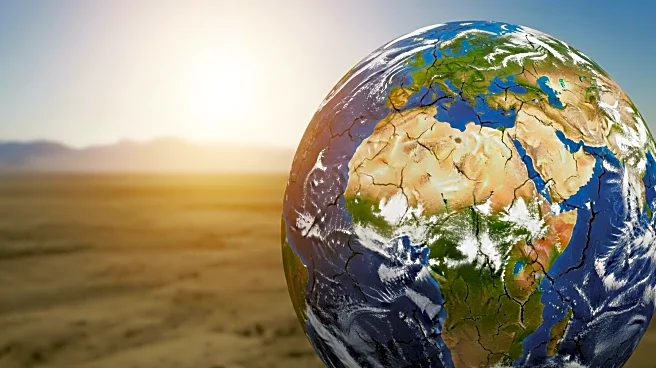What's Happening?
A study published in Nature Communications predicts severe global water shortages by 2100 due to climate change. Researchers from the IBS Center for Climate Physics project that 74% of drought-prone regions will face persistent droughts under high emissions scenarios. The study highlights the risk of 'day zero drought' events, where regions run out of water, affecting 753 million people globally. The western U.S., Mediterranean, and parts of Africa and Asia are identified as high-risk areas. The study emphasizes the need for local and regional planning to mitigate these risks.
Why It's Important?
The projected water shortages have significant implications for global and U.S. regions, particularly in the western U.S. where water demand is already high. These shortages could impact agriculture, urban water supply, and overall economic stability. The study provides a framework for policymakers to plan emergency responses and long-term strategies to address water scarcity. Understanding these risks is crucial for developing sustainable water management practices and infrastructure investments.
What's Next?
Policymakers and stakeholders are expected to use the study's findings to inform water management strategies and climate adaptation plans. Future research may incorporate more climate models to refine predictions and account for groundwater's role in buffering droughts. The urgency of the issue may drive increased investment in water conservation technologies and infrastructure improvements.
Beyond the Headlines
The study underscores the ethical and social dimensions of water scarcity, highlighting the need for equitable access to water resources. As climate change exacerbates these challenges, vulnerable communities may face disproportionate impacts, necessitating targeted interventions to ensure water security and social justice.








